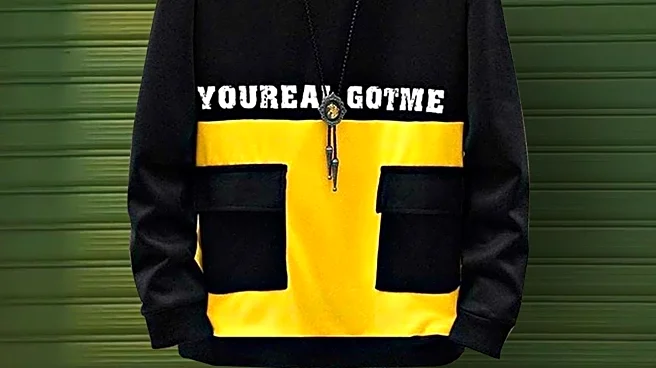What's Happening?
Hypebeast culture, a term originating from streetwear and sneaker culture, describes individuals with a fervent passion for fashion, particularly rare and exclusive items. The term combines 'hype,' meaning
extravagant publicity, and 'beast,' indicating an intense enthusiasm. This subculture emerged in the early 2000s, gaining momentum through social media platforms where enthusiasts share and showcase their style globally. Hypebeasts are known for their dedication to acquiring high-end, limited-edition branded clothing and accessories from brands like Supreme, Off-White, and Nike. They often participate in online raffles or stand in long lines to secure these coveted pieces.
Why It's Important?
Hypebeast culture significantly impacts contemporary fashion, influencing both streetwear and luxury brands. The community's purchasing power has led to collaborations between traditional luxury brands and streetwear labels, creating limited collections that blend luxury with urban culture. This trend has popularized the 'drop' business model, where limited-edition products are released at regular intervals, creating urgency and driving sales. The culture also fosters a global community, with enthusiasts exchanging information and opinions online, keeping the culture dynamic and influential.
What's Next?
As hypebeast culture continues to evolve, its influence on fashion trends is expected to grow. Brands may increasingly adopt the drop model to capitalize on the hypebeast community's demand for exclusivity. Additionally, the culture's emphasis on social media presence suggests that digital platforms will remain crucial for brand engagement and marketing strategies. The ongoing collaboration between luxury and streetwear brands may further blur the lines between high fashion and streetwear, appealing to a broader audience.
Beyond the Headlines
Hypebeast culture raises questions about consumerism and the role of social media in shaping fashion trends. The emphasis on exclusivity and status through fashion highlights societal values around materialism and identity. Moreover, the culture's reliance on social media for validation and recognition underscores the platform's power in influencing personal and collective identities. As the culture grows, it may prompt discussions on sustainability and ethical consumption in the fashion industry.









